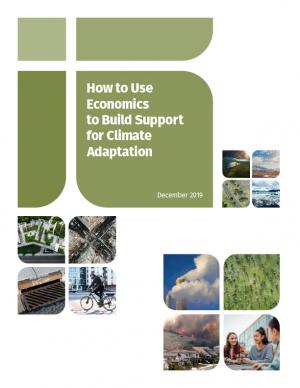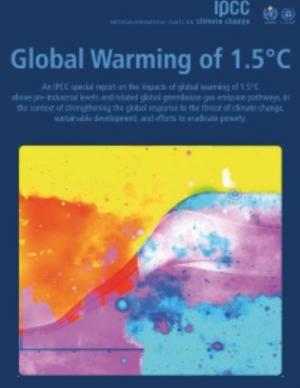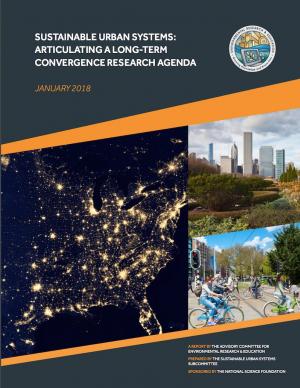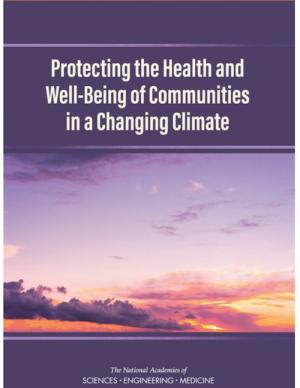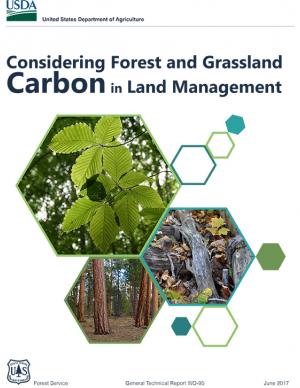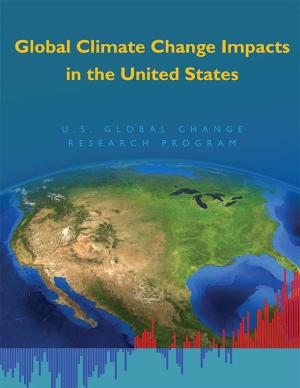Access a range of climate-related reports issued by government agencies and scientific organizations. Browse the reports listed below, or filter by scope, content, or focus in the boxes above. To expand your results, click the Clear Filters link.
This is the FY22 edition of the U.S. Gllobal Change Research Program's annual report to Congress mandated by the the Global Change Research Act. The report provides an overview of the Program’s progress in delivering on its strategic goals as well as a summary of agency expenditures under USGCRP’s budget crosscut.
The central recommendation of this report, submitted to the National Climate Task Force, is that the pursuit of a decade-long national conservation effort be faithful to eight core principles. These principles—which include a commitment to collaboration, support for voluntary and locally led conservation, and honoring of Tribal sovereignty and private property rights—are essential ingredients to building and maintaining broad support, enthusiasm, and trust for this effort. These principles are also indispensable to achieving durable outcomes that meaningfully improve the lives of Americans.
The world is transforming its energy system from one dominated by fossil fuel combustion to one with net-zero emissions of carbon dioxide (CO2), the primary anthropogenic greenhouse gas. This energy transition is critical to mitigating climate change, protecting human health, and revitalizing the U.S. economy. To help policymakers, businesses, communities, and the public better understand what a net-zero transition would mean for the United States, the National Academies of Sciences, Engineering and Medicine convened a committee of experts to investigate how the U.S. could best decarbonize its transportation, electricity, buildings, and industrial sectors.
This report, Accelerating Decarbonization of the United States Energy System, identifies key technological and socio-economic goals that must be achieved to put the United States on the path to reach net-zero carbon emissions by 2050. The report presents a policy blueprint outlining critical near-term actions for the first decade (2021-2030) of this 30-year effort, including ways to support communities that will be most impacted by the transition.
This report presents recommendations for how state governments can develop climate-resilience financial systems that help local communities invest in protecting residents, businesses, public infrastructure, private property, and natural resources from climate-driven stresses and shocks. To help states consider and act on the recommendations, a State Climate Resilience Action Checklist (page 50) identifies the essential actions that states need to take to build a comprehensive approach to resilience, including a financial system. The report also offers an Inventory of Climate Resilience Actions.
A growing number of local governments are taking steps toward climate adaptation, mostly through the development of climate adaptation plans. However, the rate and pace of adaptation action has significantly lagged behind planning, especially in mid- and small-sized municipalities where resources are often limited and local politics may further delay action. This report describes how to use economics to build support for climate adaptation. Using case studies from cities large and small, it highlights how to effectively use economic data and methods, provides eight types of economic analyses for climate adaptation, and explains how to clearly communicate economic data to different audiences.
This special report from the Intergovernmental Panel on Climate change describes the impacts of global warming of 1.5 °C above pre-industrial levels. The report also describes potential global greenhouse gas emission pathways, in the context of strengthening the global response to the threat of climate change, sustainable development, and efforts to eradicate poverty.
In 1950, fewer than one-third of the world's people lived in cities. Today more than half do. By 2050, urban areas will be home to some two-thirds of Earth's human population. This scale and pace of urbanization has never been seen in human history.
The report provides a foundation for new scientific collaborations on how cities function, how they grow, and how they can be managed sustainably for decades to come.
On March 13, 2017, the Roundtable on Environmental Health Sciences, Research, and Medicine and the Roundtable on Population Health Improvement jointly convened a 1-day public workshop in Washington, DC, to explore potential strategies for public health, environmental health, health care, and related stakeholders to help communities and regions to address and mitigate the health effects of climate change. Participants discussed the perspectives of civic, government, business, and health-sector leaders, and existing research, best practices, and examples that inform stakeholders and practitioners on approaches to support mitigation of and adaptation to climate change and its effects on population health. This publication summarizes the presentations and discussions from the workshop.
Forest and grassland ecosystems provide a wide range of services, including wood products, recreation, wildlife habitat, and protection of water quality. These ecosystems are also extremely valuable for their ability to store carbon, with U.S. forests absorbing more than 600 million metric tons of carbon each year. This report describes the role of forests and grasslands in the carbon cycle and outlines considerations for managing for carbon as one of many environmental benefits provided by natural ecosystems. Land management activities can influence the ability of ecosystems to absorb and sequester carbon, as well as provide other ecosystem services, and this report explores considerations for land managers interested in increasing carbon benefits on the lands that they manage.
The National Climate Assessment assesses the science of climate change and its impacts across the United States, now and throughout this century. It documents climate change-related impacts and responses for various sectors and regions, with the goal of better informing public and private decision making at all levels.
The assessment draws from a large body of scientific peer-reviewed research, technical input reports, and other publicly available sources; all sources meet the standards of the Information Quality Act. The report was extensively reviewed by the public and experts, including a panel of the National Academy of Sciences, the 13 federal agencies of the U.S. Global Change Research Program, and the Federal Committee on Environment, Natural Resources, and Sustainability.
In 2008, agricultural greenhouse gas sources accounted for about six percent of total U.S. greenhouse gas emissions. This report, known as the USDA GHG Inventory, was developed to provide a comprehensive assessment of the contribution of U.S. agriculture and forestry to greenhouse gas emissions and carbon sequestration, providing an in-depth look at greenhouse gas emissions and carbon sequestration at the state and regional scales.
This report is the Second National Climate Assessment, summarizing the science and impacts of climate change on the United States. The report discusses climate-related impacts for various societal and environmental sectors and regions across the nation. It is an authoritative scientific report written in plain language, with the goal of better informing public and private decision making at all levels.





